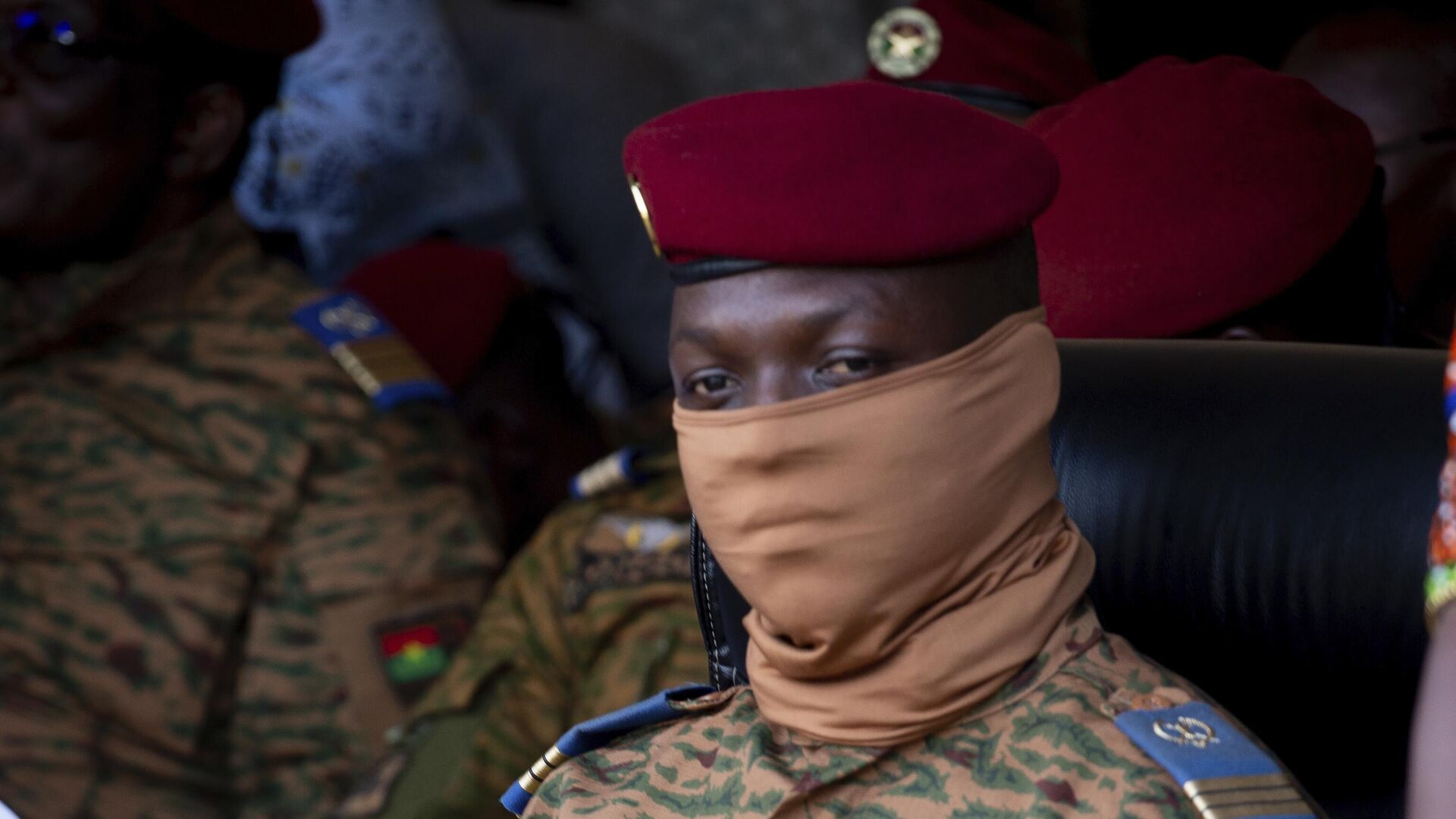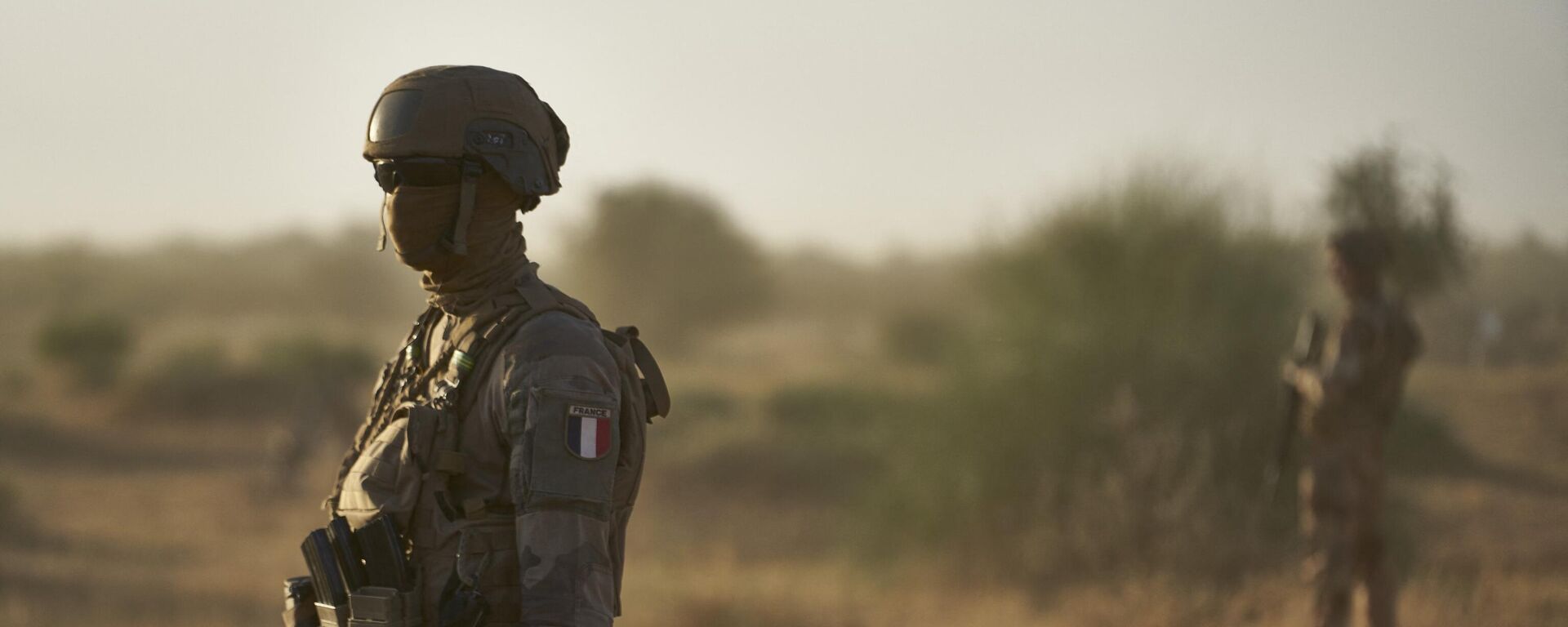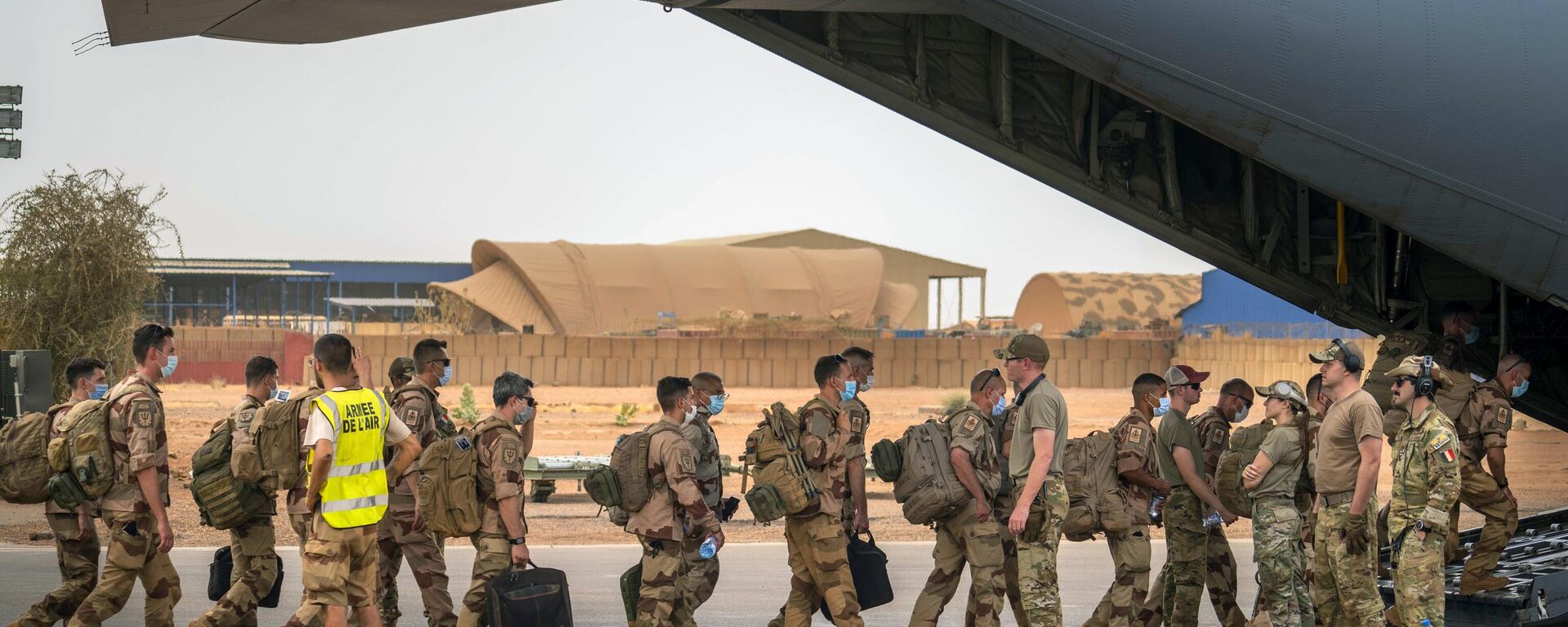https://en.sputniknews.africa/20230302/1058537122.html
What's Inside 1961 Burkinabe-French Agreement Scrapped by Ouagadougou?
What's Inside 1961 Burkinabe-French Agreement Scrapped by Ouagadougou?
Sputnik Africa
Burkina Faso is the second West African country after Mali to reject military assistance provided by France. Paris totally withdrew its forces from Mali last... 02.03.2023, Sputnik Africa
2023-03-02T11:46+0100
2023-03-02T11:46+0100
2023-04-12T16:00+0200
features
france
sahel
operation barkhane
west africa
africa in details
military
military cooperation
agreement
https://cdn1.img.sputniknews.africa/img/07e7/04/0c/1058537286_0:0:3071:1728_1920x0_80_0_0_475654ec3a25f6315b63c501204398ca.jpg
Burkina Faso has reportedly denounced a military assistance agreement with France, signed in 1961.The letter stipulates that the remaining French military personnel in the country's military administrations must leave Burkinabe soil within a month.What were the key points of the Burkinabe-French military assistance agreement?In line with the agreement, as cited by the media, France had to place at the disposal of Ouagadougou its officers and troops, whose assistance was necessary to organize, instruct, and supervise the Burkinabe armed forces.In addition, the agreement set out "free" provision of all or part of the military materials and equipment which were necessary for the Burkinabe military.Beyond that, Burkinabe nationals were allowed to be admitted to French education institutions and military establishments by competitive examination along with French citizens.The agreement, however, obliged Burkina Faso to address France as a priority to renew the military materials and equipment of its armed forces. This point envisaged "ensuring the armament standartization".At the same time, light weapons, transmission equipment and combat vehicles for the Burkinabe army were also supplied only by France. However, there is a clause saying that Burkina Faso may accept military assistance from a third party when France is unable to provide it.French troops' withdrawal from the Sahel regionUnder Operation Barkhane in the Sahel region launched by France in 2014, Paris had its military presence in Burkina Faso, Mali, Chad, Mauritania, and Niger. In line with the initial supposed goal of the operation, France came to fight terrorism in the region. However, the European state has repeatedly been accused of failing in its attempts.On 24 January, the Burkinabe authorities demanded that French troops located in Burkina Faso would be withdrawn after the African nation's government had terminated a bilateral Burkinabe-French agreement; France had one month to withdraw its troops from the West African country and did so on 20 February.This happened after relations dramatically deteriorated between Paris and Ouagadougou, including the request of Burkina Faso that France recall its ambassador.However, as Burkina Faso is not the only country where the former colonial power maintained a military presence, which disappointed locals. There are also Mali and Niger, the countries that have also seen public protests against the French troops on their soil.In summer last year, neighboring Mali got rid of the French military presence. Paris totally withdrew its troops from the country after Bamako terminated bilateral Malian-French agreements in 2022, as the European country was accused of supporting the terrorism it had actually come to fight.French president Emmanuel Macron recently said his government was planning to reorganize the presence of French troops on the continent with the help of a new security partnership.Macron also emphasized that "France's role is not to fix all problems in Africa".While France is losing its military presence in Africa and announcing plans to "reorganize" it, Macron is now on a trip to four African countries – Gabon, Angola, the Republic of the Congo, and the DRC, – where people are also protesting against his visit.France's new plans concerning its military presence in Africa have already been criticized.Recently, in an interview with Sputnik, Francois Asselineau, a former top French civil servant and political observer, called Macron's African tour an indication of emergency and said France's leadership lacks vision for the continent.
https://en.sputniknews.africa/20230220/1058537863.html
https://en.sputniknews.africa/20230114/1058538459.html
france
sahel
west africa
Sputnik Africa
feedback@sputniknews.com
+74956456601
MIA „Rossiya Segodnya“
2023
Sputnik Africa
feedback@sputniknews.com
+74956456601
MIA „Rossiya Segodnya“
News
en_EN
Sputnik Africa
feedback@sputniknews.com
+74956456601
MIA „Rossiya Segodnya“
Sputnik Africa
feedback@sputniknews.com
+74956456601
MIA „Rossiya Segodnya“
france, sahel, operation barkhane, west africa, africa in details, military, military cooperation, agreement
france, sahel, operation barkhane, west africa, africa in details, military, military cooperation, agreement
What's Inside 1961 Burkinabe-French Agreement Scrapped by Ouagadougou?
11:46 02.03.2023 (Updated: 16:00 12.04.2023) Longread
Burkina Faso is the second West African country after Mali to reject military assistance provided by France. Paris totally withdrew its forces from Mali last summer against the backdrop of the persistent terrorism in the the Sahel region, which French operations were supposedly trying to put an end to.
Burkina Faso has reportedly denounced a military assistance agreement with France, signed in 1961.
In Burkinabe Foreign Ministry's Tuesday diplomatic note to Paris, cited by media, Ouagadougou "denounces the technical military assistance agreement concluded in Paris 24 April 1961 between the Republic of Upper Volta [Burkina Faso's former name] and the French Republic, including its two annexes."
The letter stipulates that the remaining French military personnel in the country's military administrations must leave Burkinabe soil within a month.
What were the key points of the Burkinabe-French military assistance agreement?
In line with the agreement, as cited by the media, France had to place at the disposal of Ouagadougou its officers and troops, whose assistance was necessary to organize, instruct, and supervise the Burkinabe armed forces.
In addition, the agreement set out "free" provision of all or part of the military materials and equipment which were necessary for the Burkinabe military.
Beyond that, Burkinabe nationals were allowed to be admitted to French education institutions and military establishments by competitive examination along with French citizens.
The agreement, however, obliged Burkina Faso to address France as a priority to renew the military materials and equipment of its armed forces. This point envisaged "ensuring the armament standartization".
At the same time, light weapons, transmission equipment and combat vehicles for the Burkinabe army were also supplied only by France. However, there is a clause saying that Burkina Faso may accept military assistance from a third party when France is unable to provide it.
French troops' withdrawal from the Sahel region
Under Operation Barkhane in the Sahel region launched by France in 2014, Paris had its military presence in Burkina Faso, Mali, Chad, Mauritania, and Niger. In line with the initial supposed goal of the operation, France came to fight terrorism in the region. However, the European state
has repeatedly been accused of failing in its attempts.
On 24 January, the Burkinabe authorities demanded that French troops located in Burkina Faso would be withdrawn after the African nation's government had terminated a bilateral Burkinabe-French agreement; France had one month to withdraw its troops from the West African country and did so on 20 February.
This
happened after relations dramatically deteriorated between Paris and Ouagadougou, including the request of Burkina Faso that France
recall its ambassador.
However, as Burkina Faso is not the only country where the former colonial power maintained a military presence, which disappointed locals. There are also Mali and Niger, the countries that
have also seen public protests against the French troops on their soil.
In summer last year, neighboring Mali got rid of the French military presence. Paris totally withdrew its troops from the country after Bamako terminated bilateral Malian-French agreements in 2022, as the European country
was accused of supporting the terrorism it had actually come to fight.
French president Emmanuel Macron recently said his government was planning to reorganize the presence of French troops on the continent with the help of a new security partnership.
"Our model must not be any more military bases like those we have now," Macron said in his 27 February speech at the Elysee presidential palace in Paris, adding: "Tomorrow, our [military] presence will go through bases, schools, academies, which will be jointly managed [by French and African staff]".
Macron also emphasized that "France's role is not to fix all problems in Africa".
While France is losing its military presence in Africa and
announcing plans to "reorganize" it, Macron is now on a trip to four African countries – Gabon, Angola, the Republic of the Congo, and the DRC, – where people are also
protesting against his visit.
France's new plans concerning its military presence in Africa have already been criticized.
Recently, in an interview with Sputnik, Francois Asselineau, a former top French civil servant and political observer, called Macron's African tour an indication of emergency and said France's leadership lacks vision for the continent.
"This [visit] is an emergency, one might say. France is rapidly losing all influence in Africa, despite the fact that the French language has for 150 years been the only vehicle for the very many ethnic groups [in central Africa] to speak to each other. It is still often the language of the administration there, but that is changing rapidly," Asselineau, who also ran against Macron in the 2017 presidential election, argues.



